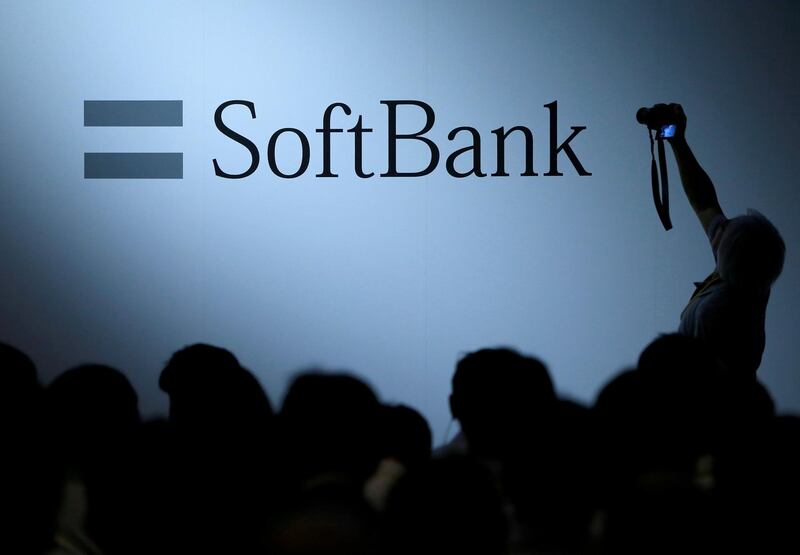SoftBank Group Corporation dispensed with a price range and chose to set a single preliminary figure for the $21 billion initial public offering of its Japanese telecom business, showing that the company and its bankers are confident of their ability to gauge demand.
It’s the first time that a stock will debut on the Tokyo Stock Exchange without a range, one of the lead underwriters said. The Japanese technology giant plans to sell shares for 1,500 yen apiece, it said in a filing Friday, the same price that it indicated when announcing the IPO earlier this month.
At that figure, the IPO would raise at least 2.41 trillion yen ($21 billion). Founder Masayoshi Son and his bankers are betting that they will be able to sell all of the shares in the cash-generating business, which spans wireless, broadband and fixed-line services and has 34 million mobile subscribers. Usually, potential investors are given a range, so that the final price can be adjusted for fluctuations in demand.
“They must have a high degree of confidence,” said Chris Lane, an analyst at Sanford C Bernstein & Company.
An underpriced IPO would raise less cash for the company and could see the shares jump when trading starts on December 19. On the other hand, an overpriced IPO carries the risk of leaving unsold shares on the table. The final price may still be adjusted, SoftBank said.
Including an option to sell more shares, the offering could climb to as much as 2.65 trillion yen. The Japanese billionaire is transforming his Tokyo-based company from a telecom operator into a global tech investor, with stakes in Uber Technologies and ARM Holdings. But the listing comes at a time when Japan’s wireless industry has come under pressure from the government to reduce phone bills and the entry of e-commerce giant Rakuten raises prospects of a price war.
SoftBank is selling about 1.6 billion shares in the new entity, which will be called SoftBank Corporation, and plans to set the final price on December 10.
___________
Read more:
SoftBank gets go-ahead for Dh77bn listing of telecoms unit
SoftBank earnings come in far above estimates
___________
SoftBank is looking to tempt investors with a dividend payout ratio of about 85 percent of net income, according to the filing. Based on net income in the latest fiscal year, that would work out to a yield of almost 5 per cent.
“There seems to be strength with domestic retail investors and the reason for that is the yield,” Lane said. “There isn’t strong support from the institutional investors that I speak to, but there will be institutional buying because some fund managers will want to mimic the allocation to the index.”
Mr Son has shifted his focus in recent years to concentrate on technology investments, following successful bets on companies such as Alibaba Group Holding and Yahoo! His $100 billion Vision Fund is the largest technology investment fund ever, and he has said he plans to establish similar sized funds every two to three years.
The Japan wireless business, which would debut at a valuation of about 7.2 trillion yen at the preliminary price, would provide additional money for such deals. After the public listing SoftBank Group, the parent, will hold about 63 per cent of the wireless unit.
SoftBank’s underwriters, led by Nomura Holdings and Daiwa Securities Group, are primarily targeting retail investors in the country, people familiar with the matter said this month. They are planning to sell the vast majority of the shares to individuals, with the remainder split between domestic and foreign institutions. About 90 per cent of the offering will be sold in Japan, the filings show.
SoftBank forecasts that the domestic telecoms operations, which include wireless, broadband and fixed-line services, will post 700 billion yen in annual operating profit.
Japan’s mobile carriers have come under government scrutiny for high phone bills and convoluted pricing plans. In August, chief cabinet secretary Yoshihide Suga said mobile carriers had room to lower bills by 40 per cent, even as they step up spending to upgrade their networks. NTT Docomo earlier this month said it plans to “return” 400 billion yen to customers, while KDDI Corp. said it won’t follow along because it already introduced lower rates.
Mr Son has said the competition won’t hurt his company’s profit and SoftBank aims to cut costs by trimming about 40 per cent of the wireless business workforce, largely by introducing automation technology. Some employees will be reallocated to other parts of SoftBank.






